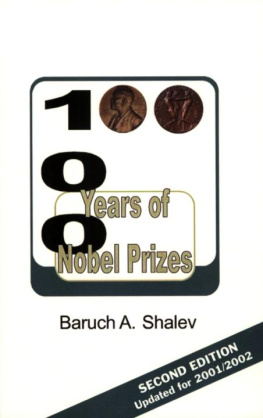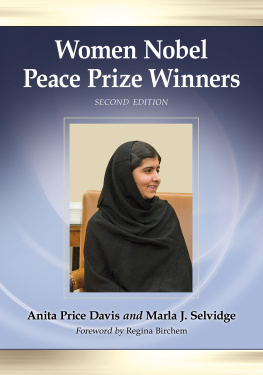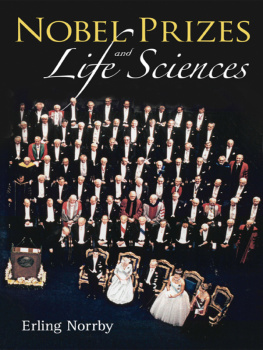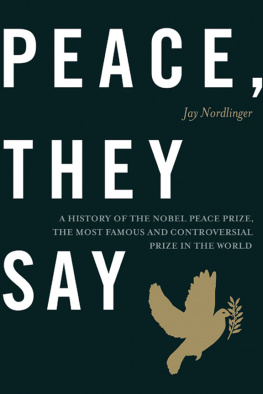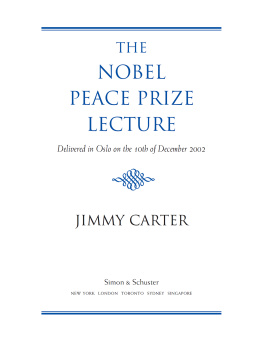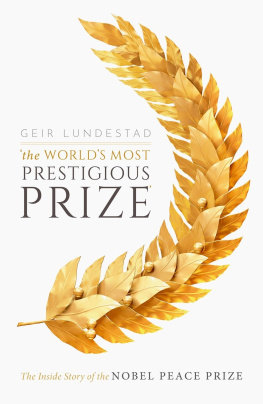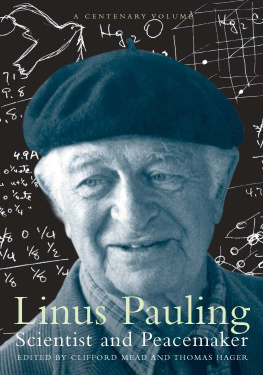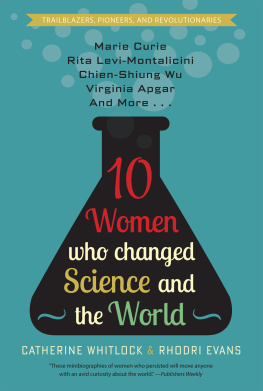Baruch Aba Shalev




I
Imagination is more important than knowledge. Knowledge is limited, imagination embraces the world, stimulating progress, giving birth to evolution.
Albert Einstein
ACKNOWLEDGEMENTS
While the work of a writer or researcher is often a solitary undertaking, the publication of his effort is clearly a collaborative enterprise. No one has become more aware of this fact than I. It took at team of editorial and administrative talent at The Americas Group in the United States to turn my statistical analysis of the first 100 years of Nobel prize-winners into a commercially-attractive book. The team was led by Godfrey Harris, an author of some 30 books in his own right, who designed, edited, and supervised this project at every stage of its development; he was assisted by Desiree Vidal, who oversaw the layout and typography, and Penelope Morensen, who managed the administrative details. In Israel, Dr. Hanoch Pasternak, a dear friend, offered valuable comments, and my wife, Rina Shalev, provided the encouragement that made every question answerable and every obstacle manageable.
Baruch Aba Shalev
Since publication of One Hundred Years of Nobel Prizes, a number of people have asked whether the patterns discerned between 1901 and 2000 have manifested themselves in the awards of 2001 and 2002. It appears that they indeed follow the trends very closely:
1. During 2001 and 2002, a total of 28 Nobel Prizes were awarded-six each in Chemistry, Medicine and Physics (three each year); five in Economics; two (one each year) for Literature; and three in Peace. This is similar to the ratio found in previous years as the science categories require more collaboration than the others.
2. Again, the United States leads with over 50% of the Nobel Prizes awarded in 2001 and 2002; the United Kingdom remained second with nearly 18% of the awards in those years. These rates exceed the ones observed in the first 100 years.
3. No women were awarded Nobel Prizes in either 2001 and 2002. The woeful and now inexplicable trend of the previous 100 years-where only 4 percent have won it-continues.
4. Again, luck seemed to play a roll in winning a Nobel Prize. Eric A. Cornell (Physics, 2001) wrote: "I began to worry that my future is choosing me instead of the other way around." Jimmy Carter (Peace, 2002) may also have finally had luck on his side. When his father's death forced him to give up his naval career, it changed the course of his life. After returning to his home town to continue the family business, he entered politics, becoming governor of Georgia and then president of the United States. Similar chance events impacting the work they did to earn a Nobel Prize have been reported by many laureates during the past 100 years.
5. About 40% of laureates selected during 2001 and 2002 earned their Nobel Prize many years after their major contributions had been recognized. Take the case of Jimmy Carter. As the architect of the successful peace treaty between Israel and Egypt, he was ignored while Menachem Begin of Israel and Anwar El-Sadat of Egypt were awarded the Peace Prize for 1978. Geir Lundestad, secretary of the Nobel Peace committee, explained: "Nobody nominated him in time." That was soon rectified with ten subsequent nominations, but no award. Then in 2002, 24 years later, he was given the award out of a record total of 156 nominees for his work as a global peace maker and humanitarian. Another example of a delayed award is that of Israeli-born Daniel Kahneman. He and the late Amos Tversky, while working at The Hebrew University in Jerusalem, published a paper in Science in 1981 that eventually led to the Nobel Prize in Economics in 2002. Although Tversky was cited by the committee, the 21-year delay prevented him from sharing the prize. He died in 1996 and Nobel Prizes are not awarded posthumously.
6. During the first 100 years of Nobel prizes, many laureates suffered from various stressful conditions during the course of their lives. This in turn led to their early maturation. The winner of the literature award for 2002, Kert'sz Imre, was no different. He was deported to Auschwitz and then to Buchenwald at the age of 13. His writings have been based on his own experiences through the Holocaust.
7. Again, also, the best universities with inspiring teachers seemed to be a prerequisite for winning a Nobel Prize in the science categories. The past 100 years have shown that about 50% of Nobel Prizes have been awarded to researchers affiliated with just 18 universities. There was no significant change in this pattern for the years 2001 and 2002.
8. No country with a totalitarian form of government won a Nobel Prize during 2001 and 2002. The trend of the first 100 years continues. An open intellectual atmosphere seems an important contributor to Nobel-level work. The principal democratic countries have earned about 85% of the Nobel Prizes awarded.
9. The relatively high ratio of Jewish laureates continued in the 2001 and 2002 years. In 2002, four of the 13 laureates were Jewish: Sydney Brenner, Robert Horvitz, Imre Kert'sz, and Daniel Kahneman. This maintained the historic trend that Jews have earned more than 20% of the Nobel Prizes awarded. This figure is particularly striking since the Jewish population comprises only a tiny fraction of the world's people. In the case of 2002, Jews received nearly as many awards as Muslims have earned in all the years of Nobel Prizes put together. Do Jews have a special gene pool? Or is their intellectual endeavors supported by environment and tradition? More discussion of this point can be found on pages 57-61.
10. All living laureates were invited to Stockholm in 2001 to help commemorate the 100th anniversary of the death of Alfred Nobel on December 10th. Surprisingly, about 20% of them (150 out of about 700) were able to attend. The life expectancy of Nobel laureates is significantly higher than the population at large. This extended longevity can also be observed in 30% of the laureates of 2001 and 2002.
Baruch A. Shalev
Elerzliya, Israel
April 2003

